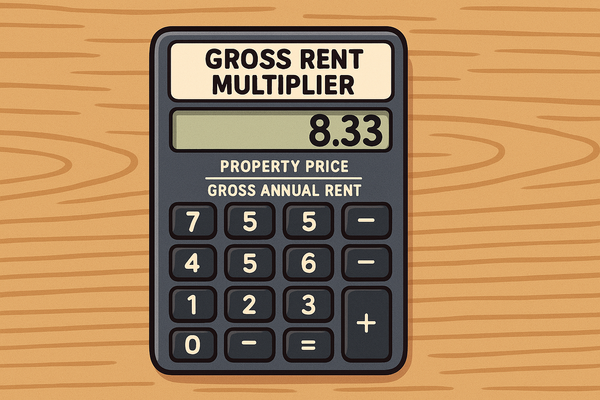Kansas Squatter's Rights Guide: 2025 Laws, HB 2378, and Property Protection
Kansas requires squatters to occupy property continuously for 15 years before they can file an adverse possession claim

For property owners in Kansas, understanding squatter's rights laws is crucial to protect your investment from unauthorized occupants who might attempt to claim legal ownership through adverse possession. With House Bill 2378 under consideration in 2025, significant changes may soon reshape how the state handles these challenging situations.
Key Takeaways
- Kansas requires squatters to occupy property continuously for 15 years before they can file an adverse possession claim
- The proposed HB 2378 would criminalize squatting and create an expedited removal process
- Making property improvements and paying taxes strengthens a squatter's adverse possession claim in Kansas
- Regular property inspections and security measures remain the best prevention against squatters
- Kansas's 15-year requirement provides more owner protection than states with shorter timeframes
- Unlike Florida's recently passed HB 621, Kansas legislation is still pending but follows a similar trend
But First... A Squatter Snippet
A Shocking Betrayal: In Kansas, a family's act of Christian charity toward a church attendee – who presented himself as someone in recovery from drugs and alcohol – ended in tragedy when their temporary guest claimed squatter's rights, burned down their grandparents' historic home, and remarkably, even had the sheriff temporarily bar the legal owners from their own property.
Understanding Kansas Squatter Rights in 2025
In Kansas, squatting itself is not legal, though squatters have historically had certain rights through the doctrine of adverse possession. This legal principle allows individuals who occupy abandoned or neglected property without permission to potentially gain legal ownership after meeting specific requirements over a 15-year period.
The distinction between squatting and trespassing becomes important in how law enforcement responds. While trespassing is an immediate criminal offense involving unauthorized entry, squatting has traditionally been treated as a civil matter requiring court proceedings for resolution.
With House Bill 2378 under consideration, Kansas may soon join states like Florida in shifting toward treating squatting as a criminal matter, providing stronger protections for property owners.
Kansas Adverse Possession Requirements
The path to adverse possession isn't simply about time spent – it requires clearing multiple significant legal hurdles collectively known as the "OCEAN" criteria, a comprehensive framework that protects legitimate property owners while setting the bar extraordinarily high for possession claims.
Open and Notorious The occupation must be visible and obvious to anyone, including the rightful owner. This prevents hidden or secretive occupation from qualifying for adverse possession.
Continuous The squatter must occupy the property continuously for 15 years without interruption in Kansas. Any temporary abandonment resets the clock on the adverse possession claim.
Exclusive The possession must be exclusive, meaning the squatter cannot share the property with others, including the rightful owner.
Actual The squatter must physically occupy the property and treat it as their own, including maintaining the property and making improvements.
Hostile In legal terms, "hostile" indicates that the occupation is without the owner's permission and against their rights.
Beyond these fundamental requirements, Kansas law considers additional factors in adverse possession claims:
- While not explicitly required, paying property taxes significantly strengthens an adverse possession claim
- Making valuable improvements to the property demonstrates commitment to ownership
- The more a squatter can show they've increased property value, the stronger their claim becomes
Kansas's Proposed HB 2378: A Game-Changing Squatter Law?
As of February 2025, Kansas lawmakers are debating House Bill 2378, which would create the "Removal of Squatters Act" and effectively criminalize squatting in the state. This represents a potential paradigm shift in how Kansas addresses squatting issues, following trends seen in states like Florida and Texas.
Key Provisions of the Proposed HB 2378:
- Defines a squatter as an individual residing in a property without legal right
- Enables property owners to initiate removal by submitting an affidavit to the local county sheriff
- Could significantly expedite the eviction process for unauthorized occupants
- Represents a "preemptive" approach to address future challenges in removing squatters
This legislative development reflects growing concerns about squatting issues nationwide and suggests Kansas may be joining the trend toward stronger protections for property owners.
How Kansas's Approach Compares To Other States
Kansas's 15-year requirement for adverse possession places it in a moderate position nationally regarding the time required for squatter claims:
Adverse Possession Timeframes
| State | Required Occupation Period | Tax Payment Required |
|---|---|---|
| Kansas | 15 years | Strengthens claim |
| Florida | 7 years | Yes |
| California | 5 years | Yes |
| New York | 10 years | No |
| Texas | 10 years (3 with deed) | Yes |
| Louisiana | 30 years | Varies |
| Ohio | 21 years | Varies |
Legislative Approaches While Kansas's HB 2378 is still under consideration, it follows similar trends seen in Florida's HB 621 (passed in 2024) and Texas's recent adverse possession legislation. All three aim to streamline the removal process and establish stronger criminal penalties for squatting activities.
Kansas's pending legislation differs from Florida's approach by focusing on "preemptive" measures rather than responding to an existing crisis. However, both seek to shift squatting from a purely civil matter to one with criminal implications.
How to Prevent Squatters in Kansas Properties
Prevention remains the most effective strategy for property owners. Here are key preventive measures to protect your Kansas property from squatters:
Regular Property Inspections
- Visit vacant properties regularly or hire property management
- Document the property's condition with dated photographs
- Maintain landscaping and exterior appearance to show active ownership
Security Systems and Monitoring
- Install visible security cameras and alarm systems
- Consider smart home security with remote monitoring
- Use motion-activated lighting around the property perimeter
- Install sturdy locks, security doors, and window reinforcements
Property Maintenance
- Keep utilities active but on minimum service levels for vacant properties
- Maintain landscaping and exterior appearance
- Collect mail regularly or have it forwarded
- Schedule timed interior lighting to create the appearance of occupation
Documentation and Signage
- Post "No Trespassing" signs prominently on the property
- Maintain comprehensive documentation of ownership
- Keep records of all property taxes paid and improvements made
Community Involvement
- Inform neighbors about vacant properties and ask them to report suspicious activity
- Join neighborhood watch programs
- Consider short-term rentals or house-sitting services for extended absences
These preventive measures not only deter potential squatters but also help establish a clear record of active ownership that can prove invaluable if adverse possession claims arise.
Legal Process for Removing Squatters in Kansas
If prevention fails and you discover squatters occupying your property, Kansas's current process requires following proper legal procedures:
Current Process:
- Serve Proper Notice: Provide squatters with a 3-day notice to vacate.
- File Eviction Lawsuit: If they don't leave, file a formal eviction lawsuit with the local district court.
- Gather Documentation: Prepare evidence proving your ownership and demonstrating the occupants are indeed squatters.
- Attend Court Hearing: Present your case before a judge.
- Obtain Eviction Order: If successful, receive an order authorizing the sheriff to remove the squatters.
- Sheriff's Execution: The sheriff will enforce the eviction order if squatters refuse to leave voluntarily.
- Secure Property: Change locks and take measures to prevent reoccupation.
If HB 2378 Passes: The proposed legislation would create a more streamlined process similar to Florida's HB 621:
- Submit Affidavit: File a verified complaint with documentation of ownership to the county sheriff.
- Sheriff Verification: The sheriff's office would verify your ownership claim.
- Expedited Removal: Law enforcement could potentially remove squatters without lengthy court proceedings.
- Secure Property: Immediately secure the property after squatter removal.
Following the proper legal process is essential, as attempting "self-help" evictions through force or other unlawful methods could expose you to lawsuits or criminal charges.
Landlord Rights and Responsibilities
As a property owner in Kansas, you have specific rights and responsibilities regarding squatters:
Rights:
- Pursue eviction through proper legal channels
- Seek damages for property destruction or unauthorized modifications
- File trespassing charges in appropriate circumstances
- Maintain and protect your property from unauthorized entry
- If HB 2378 passes, request expedited removal through the sheriff's office
Responsibilities:
- Follow legal procedures rather than attempting "self-help" evictions
- Distinguish between squatters and legitimate tenants with legal disputes
- Properly document ownership and unauthorized occupation
- Secure property after removal to prevent reoccupation
- Follow all applicable housing and property laws
Understanding these rights and responsibilities helps ensure that you address squatter situations legally and effectively while avoiding potential liability.
Tenant vs. Squatter: Legal Distinctions
It's crucial to understand the legal difference between a tenant and a squatter, as the removal processes differ significantly:
Tenants:
- Have lawful permission to occupy through a formal or informal agreement
- Pay rent (though may be behind on payments)
- Have established rights under Kansas landlord-tenant laws
- Must be removed through formal eviction proceedings
- Include former tenants whose leases have expired but continue to occupy
Squatters:
- Never had lawful permission to occupy the property
- Entered without authorization
- Pay no rent and have no rental agreement
- Can potentially be removed more quickly through proper legal channels
- Have no legitimate claim to tenancy rights
Property owners should maintain records that clearly establish who is authorized to occupy their properties to avoid confusion and legal complications.
Case Study: The Kansas Church Squatter
In a shocking Kansas case that highlights the unexpected vulnerabilities property owners may face, a family's act of kindness toward a fellow church member resulted in devastating consequences:
Situation: A multi-generational family property became vulnerable when the owners allowed a man from their church congregation, who claimed to be in recovery from addiction, to stay in their farmhouse temporarily.
Escalation: Rather than showing gratitude, the man began stealing from the family and eventually set fire to the grandparents' historic home the week before Thanksgiving.
Legal Nightmare: When confronted and asked to leave, the squatter declared, "I'm claiming squatter's rights, so you'll have to evict me." Even more disturbingly, when the father called the sheriff, he was actually instructed to leave his own property after the sheriff spoke with the squatter.
Resolution: Eventually, the father posted a formal eviction notice, and the squatter vacated days later. The family immediately secured their property with "No Trespassing" signs and chains across the driveway.
This cautionary tale emphasizes the need for vigilance, proper legal protections, and careful consideration before allowing anyone to occupy a property without formal rental agreements—even when motivated by the best of intentions.
Frequently Asked Questions
General Squatter Rights Questions
Q: What are squatter's rights in Kansas? A: Squatter's rights refer to adverse possession laws that potentially allow someone to claim ownership after occupying property openly and continuously without permission for 15 years while meeting specific legal requirements.
Q: Is squatting illegal in Kansas? A: Currently, squatting is primarily treated as a civil matter, but House Bill 2378 may soon criminalize it. Unauthorized occupation remains against the law, but the enforcement mechanisms are changing.
Q: How long does someone have to squat on property in Kansas to claim ownership? A: In Kansas, a squatter must continuously occupy a property for 15 years before they can file an adverse possession claim, which is longer than many other states.
Q: Do squatters have to pay property taxes in Kansas? A: While not explicitly required, paying property taxes significantly strengthens an adverse possession claim in Kansas and helps demonstrate commitment to ownership.
Prevention and Removal
Q: How can I prevent squatters from occupying my property? A: Regular property inspections, security systems, property maintenance, "No Trespassing" signs, and professional property management are effective prevention strategies.
Q: How do I remove squatters from my property in Kansas? A: Currently, you must provide proper notice, file an eviction lawsuit if they don't leave, attend court hearings, and obtain an eviction order. If HB 2378 passes, an expedited process through the sheriff's office may become available.
Q: Can I physically remove squatters myself? A: No. Self-help evictions are illegal in Kansas. Property owners must use legal processes to remove unauthorized occupants.
Q: Can I turn off utilities to force squatters to leave? A: No. Turning off utilities is considered a self-help eviction tactic and is illegal in Kansas. This could expose you to legal liability.
Legal Implications
Q: What is the proposed new law in Kansas about squatters (HB 2378)? A: House Bill 2378 would create the "Removal of Squatters Act," criminalizing squatting and establishing an expedited process for removing unauthorized occupants through the sheriff's office.
Q: How does Kansas's approach to squatters differ from other states? A: Kansas's 15-year requirement is longer than some states (like California's 5 years) but shorter than others (like Louisiana's 30 years). The pending legislation would align Kansas with states like Florida that have recently strengthened property owner protections.
Q: What's the difference between a squatter and a trespasser? A: Trespassing is a temporary unauthorized entry, while squatting involves sustained occupation of a property. Trespassing is immediately addressed as a criminal matter, while squatting has historically been treated as a civil issue.
Special Situations
Q: What if the squatter was previously a tenant? A: If the occupant was previously a legitimate tenant, they must be removed through traditional eviction procedures rather than expedited processes.
Q: What if I'm buying a property with squatters already living there? A: The purchase should be contingent on the removal of unauthorized occupants. The current owner should complete the removal process before closing.
Q: What if squatters damage my property? A: Document all damage with photographs and detailed descriptions. You may pursue civil remedies for financial compensation and potentially criminal charges depending on the extent of damage.
Conclusion
Kansas's approach to squatter's rights represents a balance between protecting property owners and recognizing circumstances where property has been genuinely abandoned or neglected. With House Bill 2378 under consideration, the state appears poised to strengthen property owners' rights and create more efficient remedies against unauthorized occupation.
The 15-year timeframe for adverse possession claims provides substantial protection for vigilant property owners, but the cautionary tale of the Kansas church squatter demonstrates how quickly situations can escalate even with well-intentioned arrangements.
For property owners, the keys to protecting your investment include:
- Regular monitoring and maintenance of properties
- Prompt action if unauthorized occupants are discovered
- Following legal procedures rather than self-help eviction measures
- Maintaining comprehensive documentation of ownership and property conditions
- Considering professional property management for vacant properties
By understanding Kansas's squatter rights laws and taking preventive measures, property owners can significantly reduce their risk of unauthorized occupation and potential adverse possession claims.
Resources and References
- Kansas Statutes § 60-503: Adverse Possession
- House Bill 2378 (2025): Proposed Removal of Squatters Act
Disclaimer: This article provides general information and does not constitute legal advice. Consult with a qualified attorney for guidance on your specific situation.





